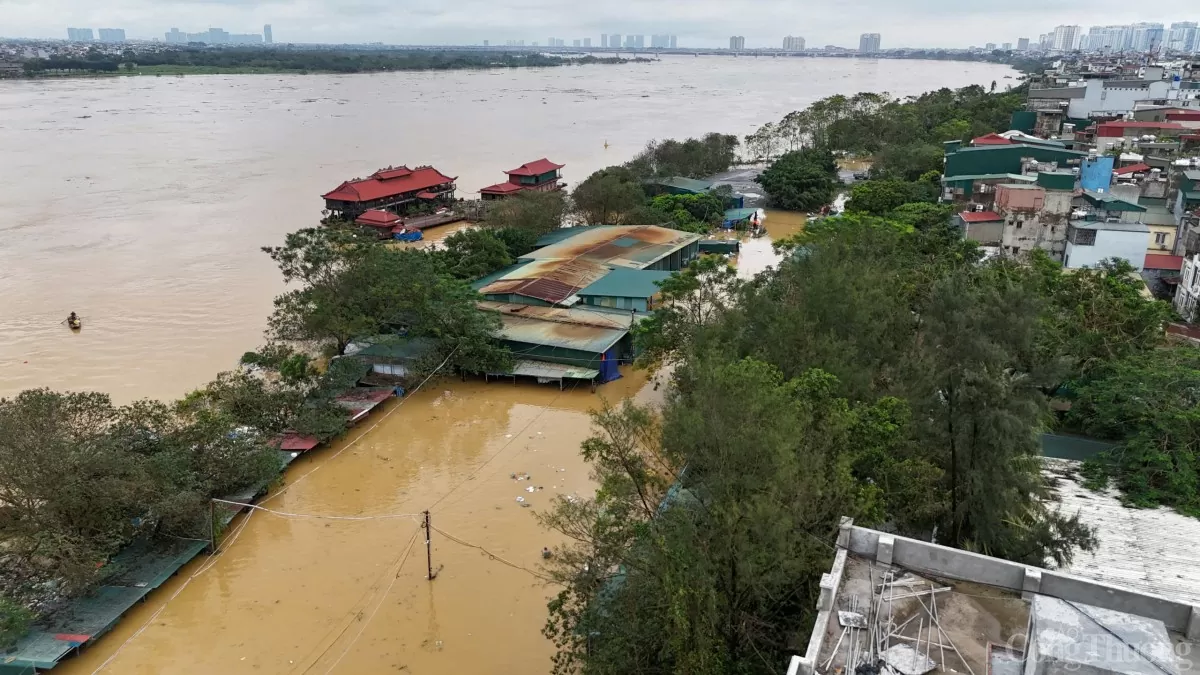According to Decree 70 of the Government, which takes effect from June 1st, households and businesses with an annual revenue of VND 1 billion or more, operating in the fields of commodity sales and direct service provision to consumers, are mandated to use e-invoices generated from cash registers with electronic data transmission to the tax authority.

Households and businesses with revenue exceeding VND 1 billion will be required to issue e-invoices from cash registers.
The Area Tax Department I (managing Hanoi and Hoa Binh) noted that households and businesses subject to the application of e-invoices generated from cash registers should urgently review and implement the transition. By May 30th, these entities must complete the registration for using e-invoices from cash registers.
Mr. Le Ngoc Huy, Head of the Department of Personal Taxes, Households, and Other Taxes, Area Tax Department I, Tax Department, stated that to use e-invoices generated from cash registers, households and businesses only need to meet the condition of having an internet connection and a computer or smartphone, or iPad. These entities can register with the tax authority and receive their approval.
For registration, households and businesses can access the Tax Department’s electronic portal (hoadondientu.gdt.gov.vn) and fill out the registration form for using e-invoices.
In cases where the tax authority has provided support and notified the transition, but the household or business has not complied, it will be considered a violation of regulations regarding invoice use.
The tax authority will coordinate with competent authorities to handle violations according to legal provisions. Accordingly, households and businesses that fail to register for using e-invoices may be fined between VND 2 million and VND 4 million. Failure to issue invoices during sales may result in a fine ranging from VND 5 million to VND 10 million. Registered entities that do not establish a connection or do not fully utilize the e-invoice system will also be subject to a fine of VND 2 million to VND 4 million.
The management of electronic invoices and documents will follow new procedures to reduce risks and enhance the effectiveness of invoice supervision, especially for invoices with codes generated by the tax authority from cash registers – a form widely implemented in the retail, food and beverage, and service industries.
According to Decree 70, households and businesses engaged in direct sales and service provision to consumers (including shopping centers, supermarkets, retail stores [excluding automobiles, motorcycles, and other motor vehicles], restaurants, hotels, passenger transport services, road transport support services, artistic performances, entertainment, cinemas, and other personal services as defined by the System of National Economic Industries of Vietnam) must meet one of the following three criteria to be eligible for registration of e-invoices generated from cash registers:
– Households and businesses paying taxes under the allocation method with an annual revenue of over VND 1 billion;
– Households and businesses using cash registers;
– Households and businesses meeting the highest scale criteria for micro-enterprises in terms of revenue and labor according to the Law on Supporting Small and Medium-sized Enterprises, and are therefore required to apply accounting practices and pay taxes under the declaration method.
The mandatory use of e-invoices generated from cash registers also applies to households and businesses that registered to use e-invoices from 2024 onwards but failed to establish a connection or transmit electronic data to the tax authority, or did not use the system comprehensively.
The Rising Electricity Prices: Consumers Fear the Pinch, Businesses Brace for Added Costs
As of May 10th, the average retail electricity price has surged by 4.8%. Amidst the current challenges, this hike feels like the proverbial “last straw” for businesses already struggling to stay afloat. With operating costs skyrocketing, enterprises are grappling to maintain their resilience. Consumers, too, are feeling the pinch, concerned about the potential knock-on effects on the prices of other goods and services, and contemplating cutbacks in their spending.
“Proposed Discount Shopping Center in Ho Chi Minh City to Lure Tourists”
“Red tape is a significant hindrance to the growth and prosperity of Vietnam’s business community. This is according to the Chairman of the Business Association in Ho Chi Minh City, who highlights the cumbersome administrative procedures as a key issue facing enterprises today. The current bureaucratic red tape is stifling the dynamic and innovative spirit of businesses, hindering their ability to adapt, grow, and contribute to the country’s economic development.”
The Race to Deliver: Dong Nai’s Urgent Push for the Bien Hoa – Vung Tau Expressway Project
The leaders of Dong Nai province have issued a pressing directive to complete the land handover for the Bien Hoa – Vung Tau expressway project this March. This comes after repeated delays in fulfilling their commitment to the Prime Minister regarding land clearance for the highly anticipated highway project.
How Much Tax Arrears Will Result in a Departure Postponement?
The proposed threshold debt amount that would trigger a travel ban for individuals and legal representatives of businesses has sparked a flurry of diverse opinions. This controversial topic has led to a heated debate, with strong arguments being presented from all sides. As the discussion unfolds, the implementation of this policy is temporarily put on hold, allowing room for further consideration and refinement.
“Eximbank Launches Exclusive Credit Package for Import-Export Businesses”
Eximbank has just launched an exceptional credit promotion program tailored for import-export businesses, featuring an attractive interest rate starting from 3.7% per year and a range of service fee waivers. This program is specially designed for SMEs and customers who have not previously had a credit relationship with Eximbank.





















